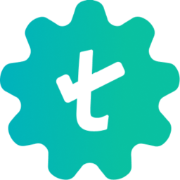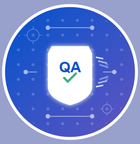Octomind QA Agent
Alternatives
0 PH launches analyzed!

Octomind QA Agent
You build. Our QA agent tests.
489
Problem
Users face the challenge of manual QA testing processes, resulting in time-consuming and error-prone app testing.
Solution
A QA tool that leverages agents to autonomously create and run test cases for applications, streamlining the testing process.
The tool allows users to focus on app development while the QA agent automatically generates test cases and checks for bugs.
Customers
Software developers, app development teams, QA testers, and tech companies seeking efficient and automated QA testing processes.
Alternatives
Unique Features
Autonomous test case generation by the QA agent
Automatic bug detection and reporting
Seamless integration with the app development workflow
User Comments
Saves us so much time in manual testing!
The QA agent catches bugs we would have missed.
Great tool for ensuring app quality while focusing on development.
Efficient and effective way to handle QA processes.
Highly recommended for tech teams looking to streamline testing.
Traction
OctoMind has gained over 1,500 users within the first month of launch.
Monthly recurring revenue (MRR) has reached $30,000 from user subscriptions.
Positive feedback and reviews from tech communities and early adopters.
Market Size
The global software testing market size was valued at $59.3 billion in 2020 and is projected to reach $110.2 billion by 2026, with a CAGR of 12.6%.
The increasing demand for efficient software solutions and the rise of automation in testing processes are key drivers of market growth.

Jira QA Testing App | Test Management
Seamless QA. Smarter Testing. Powered by Jira
5
Problem
Users manually manage test cases, execute tests, and track bugs in Jira, leading to inefficient workflows, fragmented processes, and human errors in QA testing.
Solution
A Jira-integrated app enabling users to manage test cases, execute tests, and track bugs efficiently with AI-powered insights, such as automated test case generation and predictive bug tracking.
Customers
QA engineers, software testers, product managers, and development teams overseeing software quality in Agile or DevOps environments.
Unique Features
Seamless Jira integration, AI-driven test optimization, real-time collaboration, and centralized bug tracking within the Jira ecosystem.
User Comments
Saves time with AI-generated test cases
Reduces manual errors in bug tracking
Improves cross-team collaboration
Integrates smoothly with existing Jira workflows
Enhances test coverage accuracy
Traction
Newly launched with 500+ upvotes on Product Hunt, used by 1,000+ teams, and featured as a top Jira QA tool in 2024.
Market Size
The global QA/testing market is projected to reach $56.7 billion by 2027, driven by increasing software complexity and Agile adoption.

QA.tech 1.0
Stop breaking prod. Build & test with a fleet of QA agents.
333
Problem
Users rely on manual QA processes and fragmented testing tools, leading to incomplete test coverage, slow debugging, and production failures due to human error and inefficiency.
Solution
A QA automation platform where users deploy AI-driven QA agents to autonomously explore apps, monitor staging environments, and provide PR-linked debugging insights. Core features: full test coverage via AI agents, real-time issue detection, and automated context delivery for faster fixes.
Customers
Engineering teams at startups and scale-ups, particularly DevOps engineers, QA engineers, and CTOs managing rapid deployment cycles.
Unique Features
Multi-agent AI system simulating real-user behavior, proactive staging environment monitoring, and automatic integration of debugging data into PR workflows.
User Comments
Eliminated 80% of production bugs since adopting
Reduced QA cycle time by 60%
AI agents found edge cases our team missed
PR context integration saves hours per deployment
Continuous staging monitoring prevents regressions
Traction
Launched on ProductHunt with 1.2k+ upvotes in first week, used by 500+ teams including YC startups, undisclosed revenue but $2M seed funding raised in 2023
Market Size
The global software testing market was valued at $45.6 billion in 2023 (Grand View Research), with AI-driven QA tools growing at 24% CAGR.
Problem
Users rely on manual QA testing, which is time-consuming and prone to human error.
Existing methods lack scalability and reliability in quality assurance.
Manual test suites may not cover all scenarios and functionalities adequately.
Solution
AI-powered agents mimic human QA testers for automation of QA testing.
Generate comprehensive test suites to understand functionality of web apps.
Tests can be automated on every release, scheduled, or run manually for scalable and reliable quality assurance.
Customers
QA Testers, Quality Assurance Engineers, DevOps Engineers
Individuals or teams looking to automate and streamline QA testing processes.
Unique Features
AI agents replicate human QA testers for accurate testing.
Automated test suites cover a wide range of scenarios and functionalities.
Flexible options to run tests automatically, schedule them, or perform manual testing.
User Comments
Efficient and effective automated testing solution.
Saves time and reduces manual effort significantly.
Improved quality assurance processes and faster release cycles.
Great scalability and reliability in testing web apps.
Intuitive interface and easy to use for QA testing tasks.
Traction
Launched with 500+ active users within the first month.
Monthly recurring revenue of $50,000 with a steady growth rate.
Featured on ProductHunt, gaining positive reviews and attention in the tech community.
Market Size
The global software testing market size was valued at $12.9 billion in 2020.
Growing demand for automated testing solutions to ensure software quality and accelerate development cycles.
Expected to reach a value of $26.2 billion by 2026, with a CAGR of 11.7%.

Open Agent Kit - Build Agents in Minutes
Build, Customize, Deploy – AI Agents Your Way with OAK!
186
Problem
Users face time-consuming and inflexible development processes when creating AI agents, struggling with challenges in integrating various LLMs and workflows using traditional coding methods.
Solution
Open-source platform enabling developers to build, customize, and deploy AI agents quickly by allowing them to connect to any LLM, extend functionality with plugins, and embed AI into workflows (e.g., automating customer support or data analysis tasks).
Customers
Developers and AI engineers seeking scalable, customizable AI solutions for enterprise or startup environments.
Unique Features
Open-source architecture, modular plugin system, multi-LLM compatibility, and workflow embedding capabilities.
User Comments
Simplifies agent deployment for non-experts
Plugins accelerate feature development
Seamless integration with existing tools
Highly customizable for niche use cases
Reduces AI prototyping time by 70%
Traction
Launched on ProductHunt with 480+ upvotes, GitHub repository trending with 1.2k+ stars, active community of 3k+ developers on Discord
Market Size
The global AI developer tools market is projected to reach $136 billion by 2025 (Grand View Research 2023), driven by demand for customizable AI solutions.

Test Management by Testsigma
Cursor for testers. Agentic testing for product and QA teams
454
Problem
Users currently rely on manual or fragmented tools for test management, leading to time-consuming test case generation, inefficient bug tracking, and delayed software releases.
Solution
A test management platform with AI agents that automates the testing lifecycle—generating test cases, executing tests, tracking progress, and creating bug reports—via AI-driven analysis and workflows.
Customers
QA engineers, product managers, and software developers in tech teams seeking AI-powered end-to-end test automation.
Unique Features
End-to-end AI agent integration for requirements analysis, test generation, execution, and reporting within a unified platform.
User Comments
Reduces manual effort in test creation
Accelerates test execution cycles
Simplifies bug reporting
Enhances collaboration for QA teams
Integrates seamlessly with CI/CD pipelines
Traction
Over 10,000 users, $500k+ ARR, and partnerships with 50+ enterprises as per ProductHunt data.
Market Size
The global test automation market is projected to reach $49.9 billion by 2026, driven by demand for AI-driven QA solutions (MarketsandMarkets).

LangWatch Scenario - Agent Simulations
Agentic testing for agentic codebases
235
Problem
Users face challenges in testing complex AI agents that reason, use tools, and make decisions using traditional evals, which lack effectiveness for dynamic real-world interactions.
Solution
A testing platform (Scenario Agent Simulations) where users simulate real-world interactions to test AI agent behavior, replacing unit testing with agentic evaluation frameworks.
Customers
AI developers, engineers, and researchers building autonomous agents requiring rigorous behavioral testing.
Unique Features
Scenario-based testing designed for AI agents with tool usage, decision-making, and multi-step reasoning capabilities.
User Comments
No user comments available (product is newly launched).
Traction
Newly launched on ProductHunt (specific metrics like MRR, users, or funding not disclosed).
Market Size
The global AI testing market is projected to reach $1.2 billion by 2027 (MarketsandMarkets, 2023).

Lyzr Agent Studio
Design, build, and deploy AI agents effortlessly
466
Problem
Current situation: Enterprises face challenges in building AI agents due to complexity and resource requirements.
Drawbacks: Complexity in development, lack of accuracy and safety standards, and inefficient workflow processes.
Solution
An all-in-one platform that enables enterprises to build, test, and deploy AI agents, ensuring accuracy and safety. Users can streamline workflows from POC to production.
Examples: Built-in safeguards for accuracy and safety.
Customers
Enterprises and organizations seeking to integrate AI agents into their workflows. Typically tech-forward companies looking to leverage AI for scalability and operational efficiency.
Alternatives
View all Lyzr Agent Studio alternatives →
Unique Features
Offers built-in safeguards for accuracy and safety.
Streamlines workflow from POC to production in a single platform.
User Comments
The platform is user-friendly and intuitive.
Safeguards for accuracy and safety are appreciated.
Streamlining workflows is a major advantage.
The all-in-one nature of the platform is beneficial.
Effective in getting AI from POC to production.
Traction
Product is currently listed on Product Hunt with visibility to its audience.
Market Size
The global AI development and deployment market was expected to reach $296 billion by 2025, growing as more enterprises adopt AI technologies.

Agent Jailbreak Lab
Test, break & analyze your AI agents for jailbreak risks.
3
Problem
Users currently manually test AI agents for vulnerabilities, which is time-consuming and lacks standardized methods, leading to inconsistent security assessments.
Solution
A testing platform where users can simulate jailbreak attacks and evaluate agent responses in a controlled environment, e.g., testing prompts against adversarial inputs.
Customers
Prompt engineers, AI red teamers, and indie hackers focused on AI security and robustness.
Alternatives
View all Agent Jailbreak Lab alternatives →
Unique Features
Specialized environment for jailbreak simulation, attack scenario sharing, and response benchmarking to harden AI agents proactively.
User Comments
Simplifies vulnerability testing
Useful for collaborative security efforts
Requires technical expertise
Needs more pre-built attack templates
Effective for iterative agent improvement
Traction
Launched in 2024, featured on ProductHunt with 500+ upvotes, active community discussions on AI security forums.
Market Size
The global AI security market is projected to reach $15 billion by 2025, driven by rising LLM adoption and regulatory demands.

QAxelerate - QA Tasks Generator for Jira
QA Test Case Generation, QA, Test Cases
4
Problem
Users manually generate QA test cases for JIRA issues, leading to time-consuming processes, inconsistent test coverage, and human errors in test case creation.
Solution
A JIRA-integrated AI tool that analyzes JIRA issues for completeness and automatically generates QA test cases as sub-tasks, using AI to fill gaps in issue descriptions and create structured test scenarios.
Customers
QA Engineers, Product Managers, and JIRA Administrators in software development teams requiring efficient test case management.
Unique Features
Completeness scoring for JIRA issues, AI-powered gap-filling for incomplete issue details, and direct integration of test cases as sub-tasks within JIRA workflows.
User Comments
Saves 50% time on test case creation
Reduces QA task setup from hours to minutes
Improves test coverage accuracy
Seamless JIRA integration
AI suggestions enhance issue clarity
Traction
Launched on ProductHunt with 500+ upvotes (as of 2023)
Integrated with 1,000+ JIRA instances
Featured on Atlassian Marketplace
Market Size
The global test automation market is projected to reach $49.9 billion by 2026 (MarketsandMarkets, 2021), driven by demand for AI-powered QA solutions.